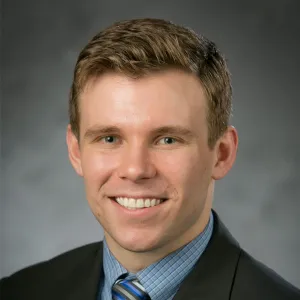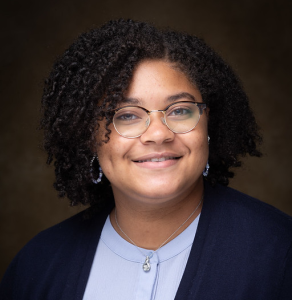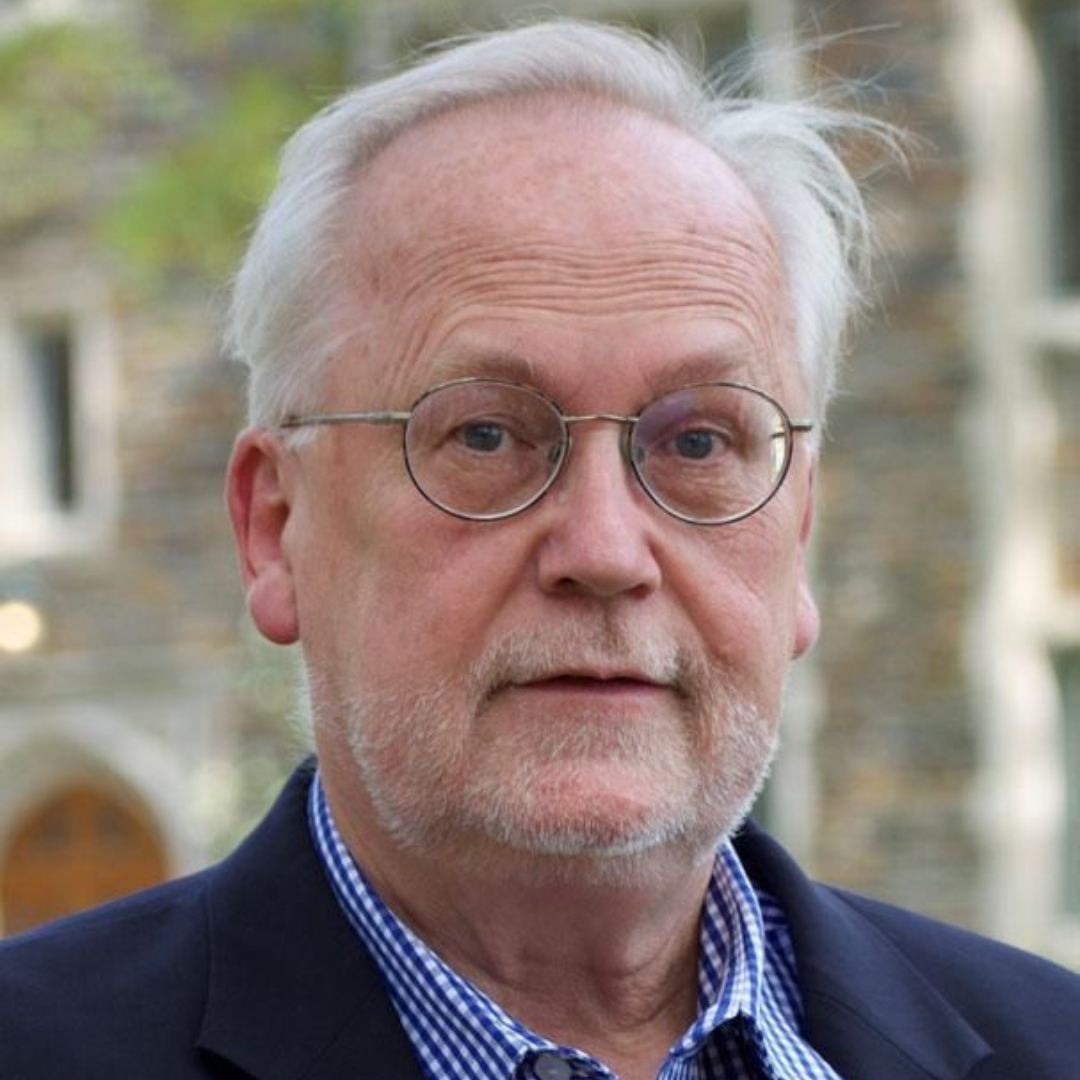Q+A: David Malone, Ph.D.
Senior Faculty at the Duke Samuel DuBois Cook Center on Social Equity and Professor of the Practice in Education at Duke University
David Malone, PhD, joined the Cook Center in 2014, when it first originated as the Duke Consortium on Social Equity. He is currently the Co-Director of the Working Group on Educational Equity & Policy at the Cook Center and a Professor of the Practice in Education. With almost 40 years of experience in leadership, teaching, and research at Duke, Dr. Malone has received various awards, including: the Dean’s Recognition of Quality of Teaching, the Trinity College School of Arts & Sciences Dean’s Distinguished Service Award for Excellence in Teaching, the Lars Lyon Faculty Service Award, and the Robert L. Sigmon Service-Learning Award.
How did your early experiences shape your path toward education and research?
I started my undergraduate experience at Brown University and graduated from University of North Carolina – Chapel Hill. When I was at Brown, I became very involved in a youth mentoring program in Providence, Rhode Island. Providence and Brown were similar to Duke and Durham in some ways, in that the relationship between the university and the city was, when I was there, not really thought about in any intentional way that an undergraduate student could discover. But through this mentoring program, I got involved with Portuguese immigrant children, mostly middle school boys, and I found a lot of meaning and purpose in this work.
I told my father, who wanted me to go to medical school. He wasn’t really happy with this, because he felt as though I had, in some ways, wasted my education, that I hadn’t pursued a more prestigious career. After my junior year, I decided to leave Brown. I took a few years off, did some soul searching, and I ended up finishing at Carolina. I then became a middle school teacher and later served as a school psychologist in Durham Public Schools.
What led you to Duke, and how has your role evolved over the years?
I came to Duke when I got a master’s in school psychology. I worked for three years as a school psychologist with the Durham Public Schools, and that allowed me to go into probably every Durham Public School building there was and develop a relationship with principals and teachers and the other school psychologists.
And then I got a PhD in Education at Duke with a focus on school and educational psychology. When I finished my graduate program in 1984, I was asked to join the Program in Education, which became a professor in practice position. The position was a new kind of clinical appointment that Duke had just created in the 80s. And through that, I began teaching undergraduate courses.
I knew that I wanted to have a community engagement component to these courses that was focused on the inequities that were very apparent in the public school system—in terms of inequitable resources schools had, and in terms of the opportunities that children had to grow and develop. So, I started matching my Duke classes with after-school programs and in-school mentoring programs. That, over time, became a central aspect of a Duke Service-Learning Program where academic courses had an experiential component, and Duke students were matched with children and adolescents in Durham public schools.
I’ve been at Duke now since 1984. That’s a long time. That’s 40 years, but all of those early experiences that I had in college, such as dealing with my own parental expectations, and attending a selective school where your peers often assume that certain careers are better than others, all of that has informed all my work at Duke with students around how they want to show up in the world and what kind of possible futures they might have.
And that’s why, in some ways, when my daughter Addison, who graduated from Duke in 2015, began working with the Aaron Young Scholars’ program, it meant a lot to me that she chose to do that because it, in some ways, was a reflection on our family’s commitment to be involved in social change and addressing the disparities that are systemic and structural in the education system.
How did you develop service learning at Duke, and why has it been such an important part of your work?
For nearly 20 years, I served as the faculty director of the Duke Service-Learning Program. Now there are 100 academic courses in probably 35 different academic departments that have some structured community-engaged learning experience for the students. A course might deal with health, education, economics, computer science, or any discipline. I’m no longer the faculty director of the Duke Service-Learning Program—I stepped down from that a couple of years ago—but the courses that I teach are service-learning courses. So right now, I’m teaching educational psychology with 36 undergraduates, and in that course, the students work about three hours a week with the Durham Public Schools, nonprofit, or community-based after-school program. So that’s an important aspect of the meaning that I get from working at Duke is trying to get students involved in working with children and young people. Getting students to realize that how they show up in the world and what types of civic responsibilities they commit to as an everyday part of their life is something they need to intentionally think about.
My experience at Duke has been that our campus culture tends to focus on individual success and a little bit less on collective success and community success, or about our collective responsibility to community well-being. And I use the word community broadly there. When I first started working at Duke, there was a lot of resistance to community service being a part of the academic experience. I mean, that’s probably hard for some students to even understand, because they’ve grown up during a time where community engagement was a norm. But when I first started working at Duke, it was sort of like, well, why would we want to go off campus? Community engagement doesn’t have academic rigor, so why should that be a part of a college experience? But like I said, I had those experiences at Brown, so I knew there was great value in incorporating service-learning into the academic experience.
And community engagement does have an impact on Duke students. Service-learning can create a little disequilibrium for students where they’re a bit off balance as to some of their assumptions about how the world works and the ways that resources are allocated, and what their responsibilities are. So that’s kind of my start at Duke with service-learning, which led me to getting involved with the Cook Center and addressing educational disparities.
You’ve been with the Cook Center since its beginning—how has it grown and changed over time from its start as the Duke Consortium on Social Equity?
Well, the growth has been tremendous and exponential. I wasn’t a central factor in the creation of the Center, but I was involved in the early meetings. And at first, to me, it seemed more like a research collaborative of faculty members who are going to seek external funding and grants together, or work on research projects, collaboratively. However, the Center has emerged as a national center on research, policy, and practice. The Center offers many exceptional programs and initiatives, and it advocates for policy. The way those three things (research, policy, practice) are intertwined in the Center has been, to me, the most remarkable aspect of its growth. It’s hard to do all three of those things well and to find ways to integrate them and connect them.
So I think it’s really changed greatly in terms of its impact, the impact that it has on graduate students, and even the impact on young junior faculty members with the faculty mentoring program for economics (DITE). There are so many ways in which it’s not solely a research center that’s producing publications—it’s a research-informed practice and policy center. That’s one of its major accomplishments, being able to emerge on the national scene, and of course, the incredible work of Professor Darity.
You’ve spent years working on issues of educational equity. What do you see as the biggest challenges and opportunities in this space today?
About the last 10 years, I’ve really had two focuses in terms of my own research. One is on service-learning and community engagement in higher education. There’s a scholarly organization I’m on the board for called the International Association for Research and Service Learning and Community Engagement (IARSLCE). It’s an organization which promotes research and scholarship around community-engaged practice in higher education. So that’s one of the things I have been very interested in. One of the research questions I’ve been very interested in asking the last 10 years is, what is the impact that community engagement has on the growth and development of college students? I’ve done some work around issues like the development of empathy, humility, perspective-taking, and other sorts of mindsets and attitudinal dispositions that might grow as a result of well-structured, well-designed, community-engaged learning experiences for college students.
The second thing that I’ve focused on in terms of my own scholarship is liberal arts and undergraduate education, more broadly speaking. I spent two years on a committee at Duke designing a new curriculum for undergraduates, and that new curriculum for Duke undergraduates goes into effect next fall. In the new curriculum, one of the things I am most interested in is the type of people we hope to develop—in addition to content knowledge of academic disciplines and the various skill sets like computing or quantitative reasoning that we want our students to develop. The main question I want to answer is: What habits of mind and habits of heart do we want Duke students to develop, and how can we go about doing that in intentional ways?
The new first year experience will involve students working as a cohort in different collections of clusters of thematically related courses, with a more learner-centered and more project-based, problem solving-based approach. Hopefully that’ll begin to transform undergraduate education and maybe counter some of the overtly pre-professional and career-oriented approaches that many of our students take. And, by the way, a focus on credentials isn’t their fault—it’s a product of the kind of education our students had that enabled them to get at Duke.
If you ask me the question, what are the biggest challenges or opportunities in terms of educational equity, all you have to do is pick up the New York Times, because public education is under complete attack, an effort to essentially abolish it. So, we’re in a fight for our lives here in terms of trying to maintain a high-impact, high-touch, high-quality, and an equitably resourced public education system.
What advice would you give to emerging researchers and policymakers navigating institutional challenges?
When you put the word emerging in front of scholars and policymakers, that presents a difficult challenge, because young and emerging scholars and policymakers are often in the position of having to navigate power structures and institutional priorities that might make them remain silent, or less willing to voice what their values and principles are. So, in terms of advice, you know, I’m older, I’m close to retirement. I have to be aware that emerging scholars are kind of in a different power position. But that said, my advice to them would be to not lose sight of your core values and the principles upon which you’ve chosen to live your life and to do your scholarly work.
Right now, there’s a movement in higher education that often refers to itself as institutional neutrality. Paulo Freire has written that silence in the face of conflict is compliance with existing power structures. So, this idea that a university like Duke, or other universities, somehow can take a neutral stance in times of challenging conflict, to me, is problematic. The purpose of the university, in my view, is to lift up humankind and to engage with difficult, big, ethical questions. Our students, faculty, staff, and everyone should be engaged in that process. So emerging scholars have to navigate this. And at times, I know that can be very challenging, but my advice is that you have to sit still with yourself, determine what your core values and your life principles are, and never lose sight of those. And that’s difficult at times.
It is also difficult to create spaces where people can interact in authentic ways. The challenge is creating both a courageous, brave space, but also a welcoming and inclusive space. And that’s one of the things I’ve really been working on in my own teaching. Making sure to identify the qualities, or as I like to call them, enabling conditions, which allow students to engage with their authentic selves, but at the same time not engage in things that diminish and dehumanize others.
What book or concept has had a lasting influence on your work and perspective?
The book Just Mercy by Bryan Stevenson had a big impact on me. It’s an older book, but I’ve learned a lot from Stevenson and have heard him speak about four times in person. One of the ways it impacted me was when Stevenson talks about four elements of social change. One of the elements is getting proximate. That had an impact on me, and I’ve tried to share that with Duke students. It’s not like you’ve got to solve the nation’s problems, or you’ve got to solve the world’s problems. You just get proximate to where you are and get involved locally in your own neighborhood and communities. I remember one time in my class, probably about seven or eight years ago, we were having this discussion about community engagement, and a student said, “I don’t even know why we have to go off campus, we have so many problems here in our own campus community.” I’m learning all the time—I hadn’t even really thought deeply about that myself. Bryan Stevenson made me think a lot about proximity.
Stevenson’s other three [elements] are to be uncomfortable, change the narrative, and be hopeful and find joy. And right now, that’s something I’m thinking a lot about. I can’t turn on the news and be joyful, you know, but I must find joy. Most of Stevenson’s work focused on individuals on death row—the challenges can grind away at you. And if you lose hope, you lose everything. So, I would say that that book has had a big impact on me and my approach on teaching. Hope is essential.
Find more of Dr. Malone at Scholars@Duke.

Lucas Hubbard writes stories, articles, and press releases to help illuminate and broadcast the Cook Center’s research, in addition to helping edit reports produced by the Center. He obtained a B.S. in economics from Duke University with a minor in creative writing. Prior to joining the Cook Center, Lucas was the Clay Felker Staff Writer at Duke Magazine.

Rachel Ruff works to disseminate research findings and current events to media materials for the Cook Center past, current, and ongoing projects. She is also responsible for crafting engaging news stories and articles that highlight the events and achievements within the Cook Center. Additionally, Rachel manages and oversees content on the website, updates program information, and leads social media efforts.

